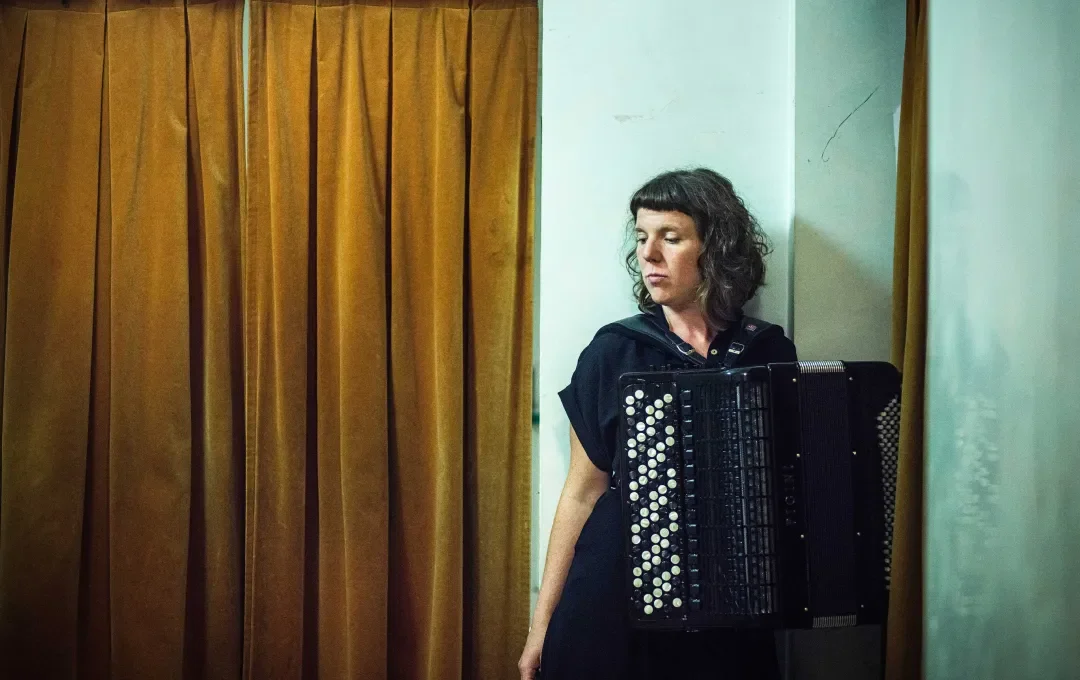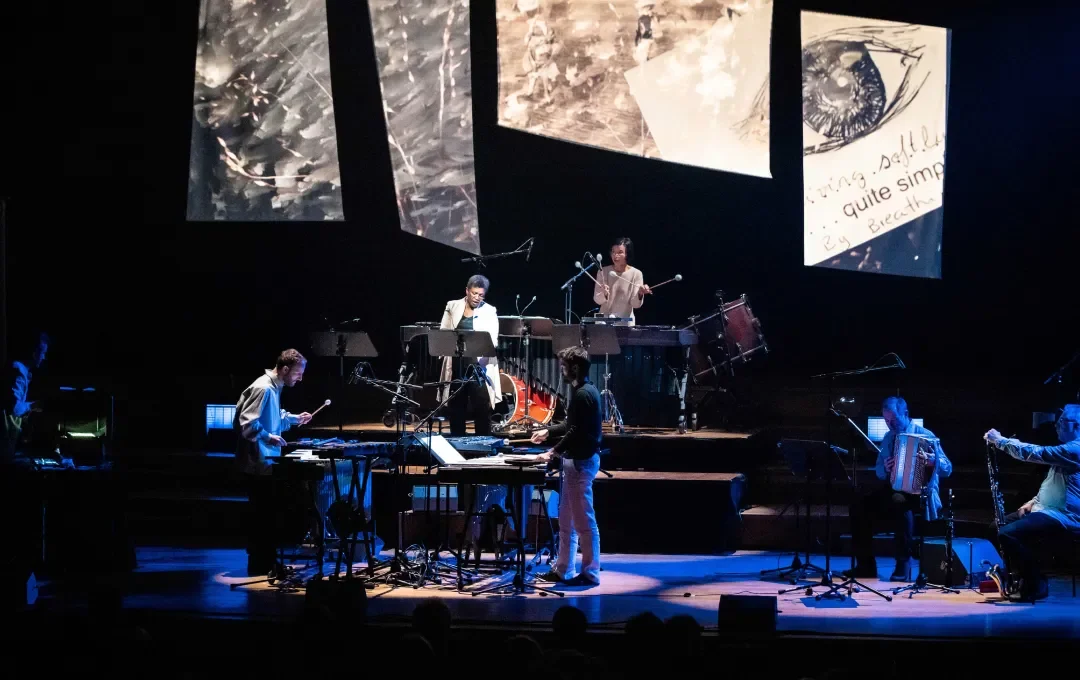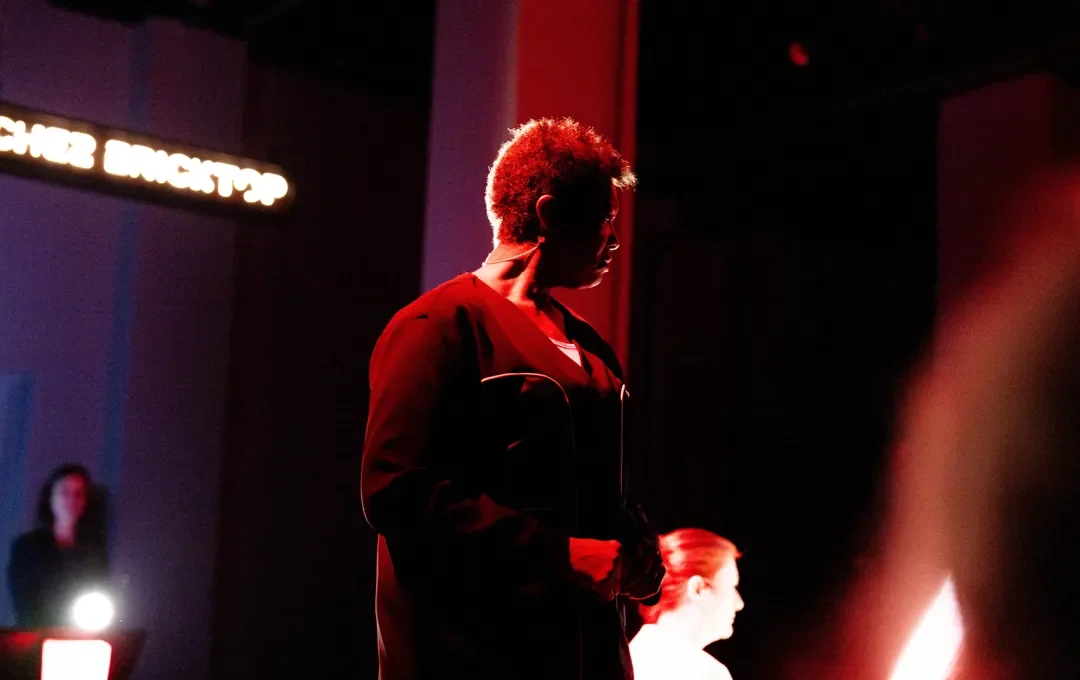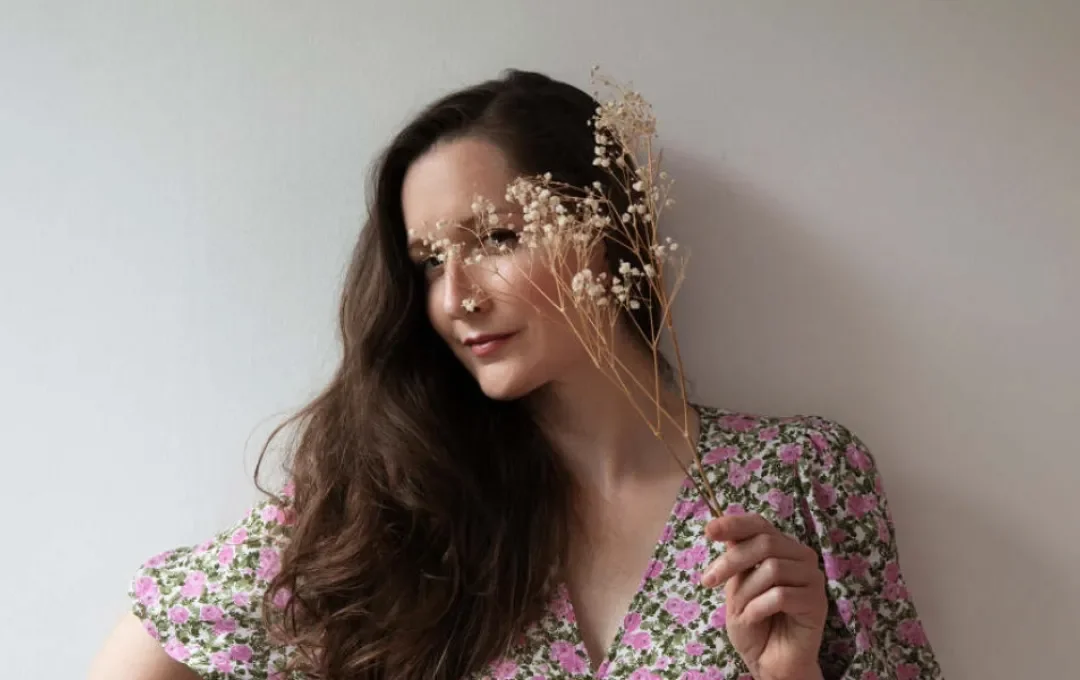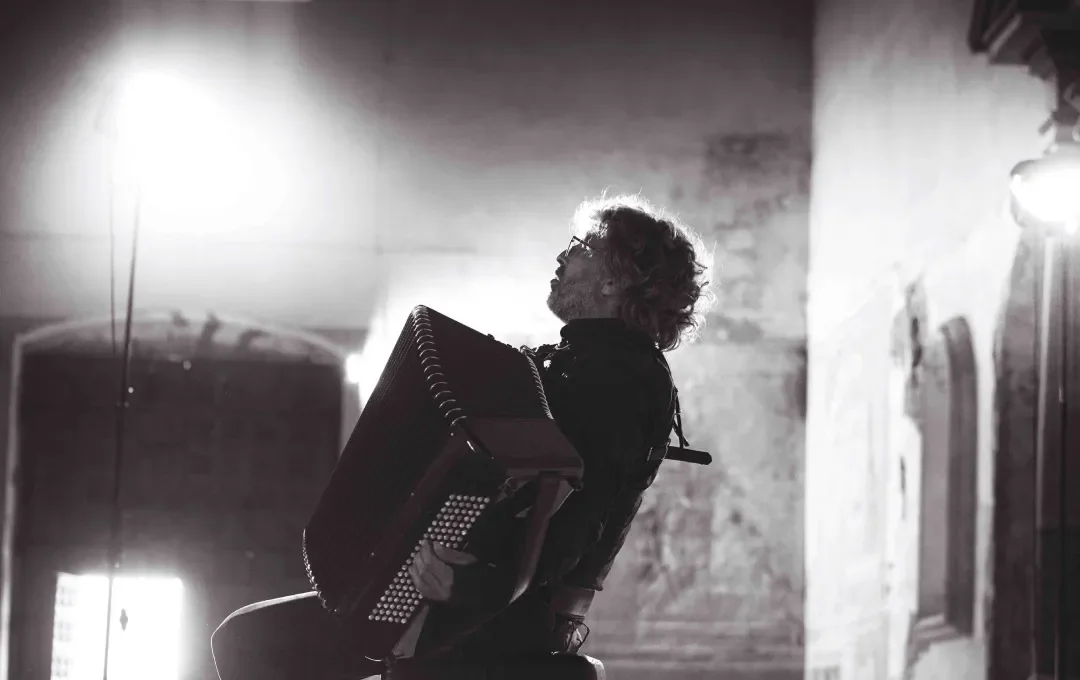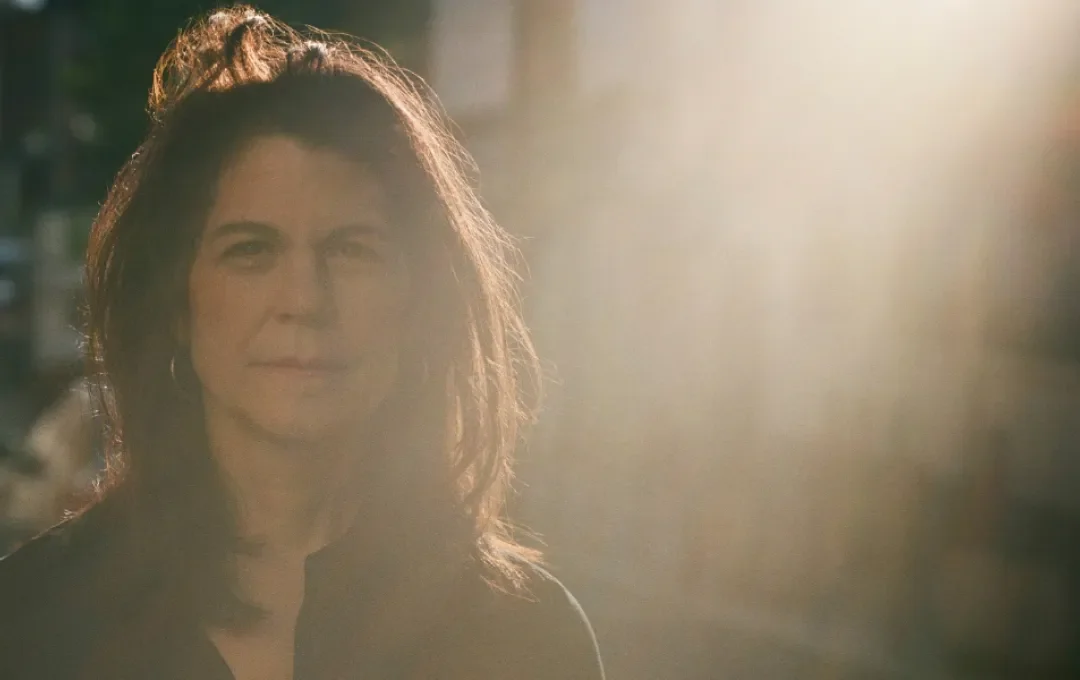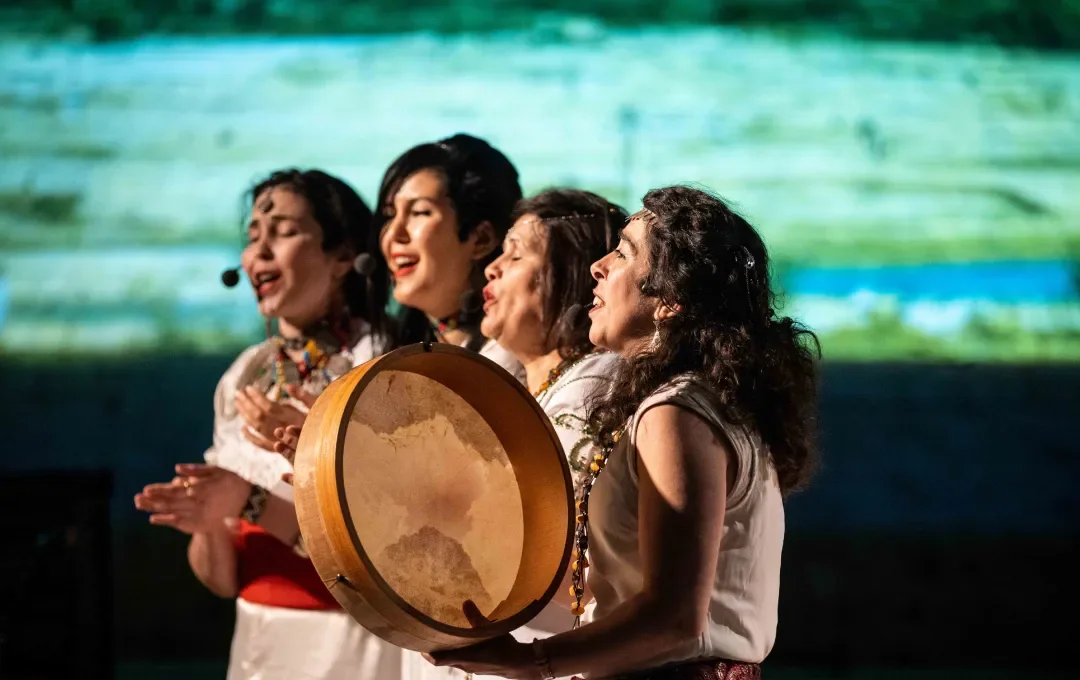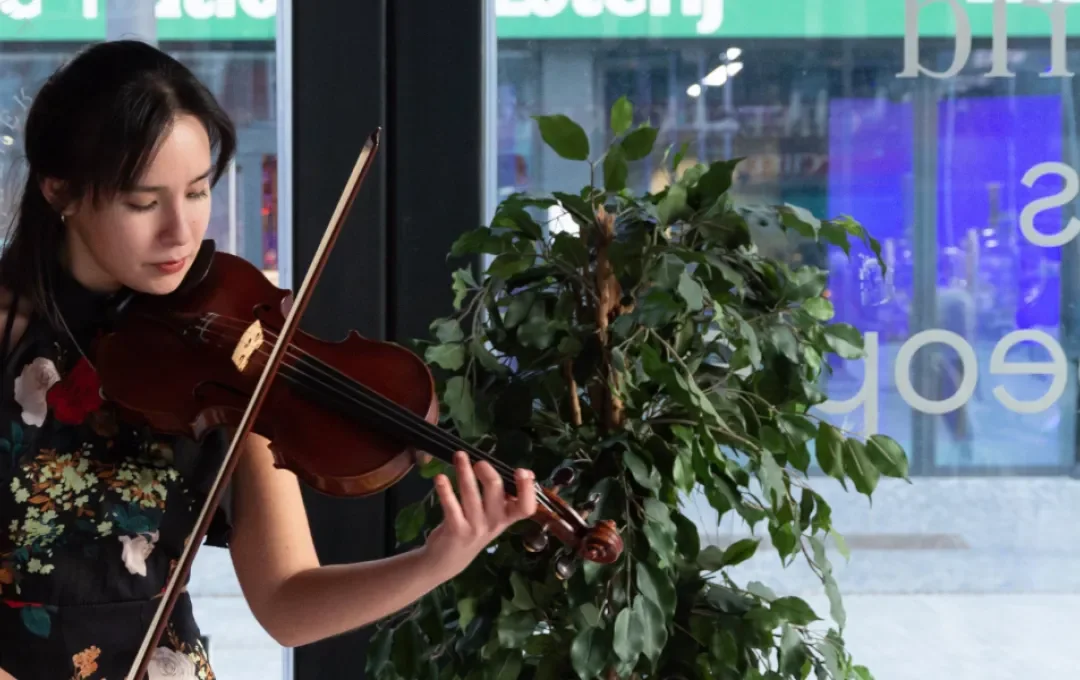
Crossroads with Claron McFadden
Read the interview with the festival artist
During Klarafestival 2024 we welcome the American soprano Claron McFadden as our central festival artist. She emigrated from the US to Europe more than 30 years ago. Since then, she has made it her life’s mission to connect generations, genres and traditions. The theme Crossroads is perfect for her, as she says herself. We spoke to her about the importance of crossroads (thinking) for her own artistic practice and the future of classical music.
Can you take us back to the moment when you discovered Western classical music?
Claron: When I was six years old, I had a music teacher with a classically trained voice, which I found strange as a child. I grew up with gospel, funk, soul. She taught us about every possible style of music, from Arlo and Woody Guthrie to the Beatles, but also Western European classical music. Through her I ended up in a children’s choir where I sang Bach’s Jesu Joy of Man's Desiring at the age of eight. At a certain point, the music underwent a rhythmic shift. This was my first experience of counterpoint, but of course at that time I had absolutely no idea what was going on. I was completely blown away by it. I felt connected to something bigger, the universe, or its infinity.
Is that what you seek in music? What drives you as an artist?
With everything I do, I ask myself three questions. One: is my curiosity piqued? All my life, I’ve been curious about new sounds, new tastes, new experiences. I need this stimulation, otherwise it feels like a chore. Two: am I learning something from it, regardless of how big or small this might be? I am extremely interested in different ways of singing, different moods and styles. And three: do I feel a connection to others? Although as a singer I am often the soloist, I actually think much more like a chamber musician. I am always aware of what is happening around me, whether I’m on stage with a pianist, a small ensemble or an entire orchestra. The percussionist at the back of the orchestra should also have the feeling that we’re creating something together. If that feeling is there, then wonderful music is created. Then I’m inspired. A project doesn’t always need to tick every box. If the answer to two of the three questions is ‘yes’ then I go for it.
If you’re so curious, do you therefore have a preference for a particular kind of music?
I believe that for everyone, certain types of music resonate more strongly than others. I’m animated and energetic, but there is also a deep melancholy in me. So I often feel attracted to music that stirs up my inner melancholy and caresses it. Knowing what resonates with you is hugely important and this is something I try to get across, to students, young people or whoever I meet. I often base my work on free improvisation. So I immediately hear which paths people go down when they’re not being consumed with fear, but are bobbing on the waves of their intuition. This is incredibly important, because in this way you develop your own voice as an artist at an intuitive level.
You only found your own voice along the way.
I began playing the oboe when I was eight years old, but later realised that it was easier to find my own voice through singing than through a reed. From the age of fifteen to eighteen I played as an oboist in a youth orchestra, and in my final year I started performing solos, but then as a singer. During my vocal training at Rochester Conservatory I came into contact with a renaissance music ensemble. I immediately felt a strong affinity with them because of my background in gospel, in which harmony is also extremely important. Puccini, Verdi: I was being given a thorough training in bel canto. I was the odd one out who was also interested in jazz, early music and contemporary music. My interest in early music ultimately brought me to Europe.

Emigration from the US to Europe is also a common thread in the new musical theatre performance Chez Bricktop, which is due to premiere at Klarafestival.
After the First World War, many black American artists, musicians and writers emigrated to Europe. During the war, black Americans could not fight alongside white soldiers, so essentially the Americans gave them to the French. They fought heroically and were also welcomed as heroes. Many of them stayed and brought their culture with them. Yet as a child, I had never heard of them. They were erased from the history books. I wanted to do something about that. I wanted to give them back the voice that was taken away from them. When I immersed myself in their lives, I discovered that not only were these people highly educated, but they had a good life in Europe, they were accepted. Just like when I first arrived in the Netherlands 40 years ago. I felt like a human being first, and black second. So it was important for me to trace these steps 100 years on. This is how I found out about Ada Bricktop. She was an icon with a legendary nightclub in Paris, and yet I had never heard of her. What started as a plan by myself and the pianist Claire Chevallier to build a recital around French and American music grew along the way into a musical theatre performance in the form of a radio programme. The place that Ada Bricktop created was a hub, a crossroads where people from different backgrounds came together and where everyone – white, black, rich, less rich, French, American – was welcome. She stood at the centre of all these encounters.
The Crossroads theme came out of these discussions. Just like Ada Bricktop, your life is made up of crossroads, whether we’re talking about your own life story or about how you connect traditions, styles and generations.
I stand at a crossroads and try to keep on standing in the middle of all that traffic, in the centre where styles and generations cross over one another, encounter one another, collide with one another, and from that encounter follow their own way again. I am now 62 years old. Many people from my generation stopped singing a long time ago and are now teaching. But I feel that my goal in life is not to be someone’s teacher, but to be a coach, to hold up a mirror to someone. In the past, when I was at the start of my career, people looked askance at me because I was engaged with many different music genres. Some styles suited me better than others, but they did colour every musical choice that I made and create a wide range of expressive possibilities. What I see these days is that many young people think in a compartmentalised manner. They believe they have to stick to a single tradition, to one way of singing. I see it as my task to show them how they can see this diverse and age-old musical history as a treasure chest, an inexhaustible source of knowledge, with which they can weave their own carpet.
Is that the reason why you perform Jesus’ Blood Never Failed Me Yet by Gavin Bryars with students?
Yes, because I believe that young people bring a fresh approach. I want to draw out this freshness. That’s why it’s important to me to allow the students to help determine how we curate the evening. So it is not the case that we come and perform the piece and then go home again, there is a way of building up to the moment. Let’s call it ‘playlists’. There is a series of live playlists curated by the students, designed to introduce the audience and the performers to the ritual of Jesus’ Blood. That is one of the reasons why I fell in love with this piece, because the performance is a collective ritual. The first time I experienced Jesus’ Blood live was when Gavin staged a marathon in Tate Modern from 8 pm until 8 am. In London, many people live on the street and they were welcome to attend the concert just like everyone else. Everyone was connected to one another and we carried on all night. People were sleeping, coming and going, and Gavin just kept on playing from start to finish. He only went to lie down once. That truly touched me. If someone is so generous, I thought, then inevitably their music must be the same. I love his music. He has his own rules, his own codes. It is complex in its own way. And I also think that it is the future of contemporary music: complex, but tonal.
You could never say the same of the music of David Lang, a composer with whom you nevertheless have a special connection.
I met David a few years ago when he asked me to sing a small fragment of his new opera prisoner of the state, so he had a soundbite with which to attract possible producers. It is remarkable that so many years later, I am singing in this opera, which recently had its Belgian premiere. There is a certain vibrancy to his music, a complexity and a minimalism that I find highly fascinating. Together with Raphaël Aggery, one of the founders of the percussion ensemble TaCTuS, the idea took shape of performing a concert with music by David, arranged by Raphael. The title of the concert alludes to just, a piece by David that was used for the film Youth by Paolo Sorrentino. In the piece, three female voices move in unison. So I thought: I’ll ask two young singers from the conservatory to sing with me. I am not a coach who tells people how they have to do something. I am a coach who says: come, stand alongside me. In that sense I am not alone in life at a crossroads, I also see myself as a crossroads, as a kind of hub. A place where people come together, like beside a well. They say that if you are in Africa and want to see wild animals, you simply have to go to a watering hole. There all the animals come together. For a short time, they live with one another in harmony, because they all need water. I believe it is truly important for young people to understand that they have control of their own artistic integrity, based on the traditions that were created before them, and at the same time to be as open as possible, because the world is continuously changing.
How do you see this change around you?
Orchestras with jazz musicians, ballet dancers with a rapper, musicians from early music who play new music or vice versa: contemporary music that is played on early musical instruments. So much is happening. There are many different elements that come together in a creative process. Whether this is about the environment or the rights of people of colour, LGTBQ+, etc.. I see that more groups are being given a voice and that these voices are increasingly coming together to tell a shared narrative. And that is the future, I think. That’s why I have the feeling that I am not only at a point in my life at which people are ready to hear what I have to say, but that I am actually in the middle of it. They all come to me: young, old, North African, European, or South American… We all share with and learn from one another. It is my passionate desire to convince the next generation of singers and to inspire them to truly open themselves up, to weave their own scarf out of all these different things that inspire them in life. And I truly believe that we can harness the knowledge of the past to create a new story for the future.
Interview by Lalina Goddard
